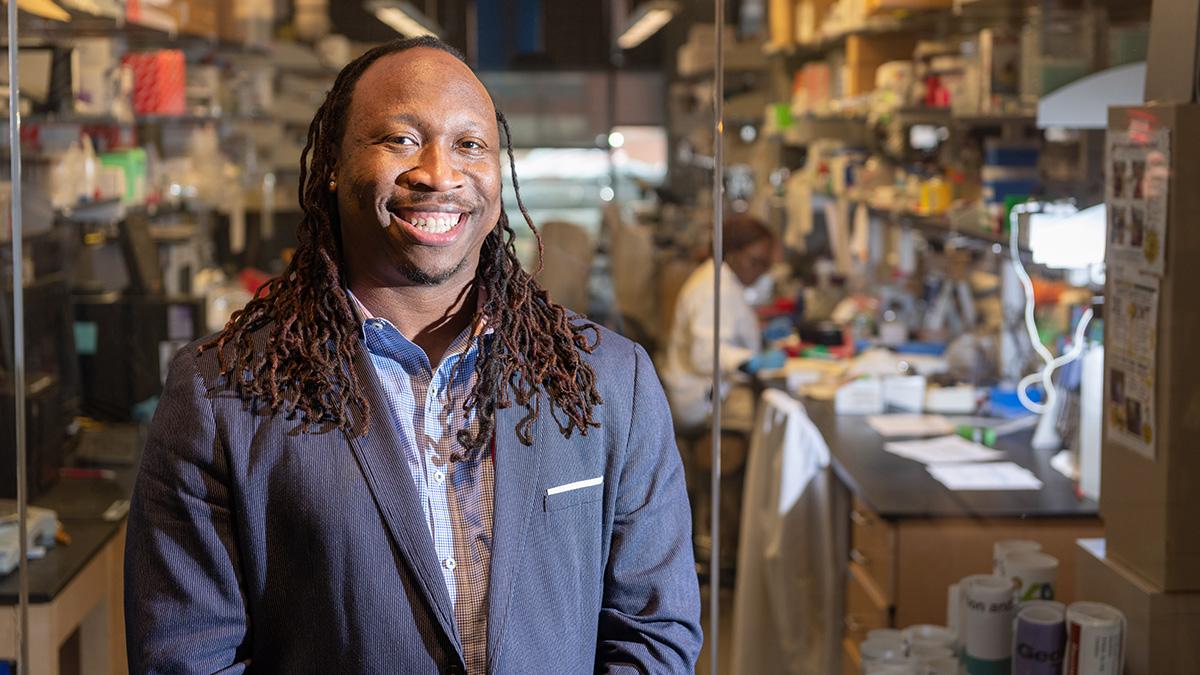In what he called a “full-circle” moment, Manu Platt has been elected to an advisory board that helps set a multi-year agenda for biomedical science.
The Scientific Advisory Board (SAB) for the Keystone Symposia includes eminent scientists who guide development of more than 50 peer-reviewed scientific conferences in biomedical and life sciences each year. Platt, a professor in the Wallace H. Coulter Department of Biomedical Engineering at Georgia Tech and Emory University, will serve at least a three-year term with the group.
Election to serve on the board is full-circle because Platt is no stranger to the organization: Earlier in his career, he was a Keystone Symposia Fellow, a professional development program for early career researchers from underrepresented backgrounds to help them become thought leaders and decision-makers.
“As Fellows, we worked with the Scientific Advisory Board to develop scientific meetings for three years in the future. It was a backdoor view into how science policy gets set, where these leaders in the scientific community come together and say, how do we drive discussion?” Platt said. “Now I’m excited to join the board and work with their members. When I was a Keystone Fellow in 2011-2012, the chair of the SAB was also the chair of the Nobel Prize committee. This is the network and the kinds of connections that will be made with scientific leaders of industry, academe, and government.”
Because the Keystone Symposia organization works on high-impact scientific meetings two to three years in the future, Platt said leaders are “in effect, predicting what will be the hot topics, where the fields should be moving,” and driving scientific discussion.
As a member of the Scientific Advisory Board, Platt said he’s looking forward to injecting and advocating for a variety of engineering topics informed by his own research spanning multiple fields. He also said he hopes to nominate speakers from a range of backgrounds, disciplines, and experiences and infuse more biomedical engineering perspectives.
Platt has been a member of the Coulter BME faculty for more than a decade and serves as associate chair for graduate studies. His research focuses on understanding how cells sense, respond to, and remodel their immediate mechanical and biochemical environments for tissue repair and regeneration. He also leads two programs aimed at improving access and inclusion for underrepresented groups in science, technology, engineering, and math. Project ENGAGES focuses on students at several high schools in Atlanta; GT-ESTEEMED is a National Institutes of Health-funded program for undergraduates.
“I remember when former Georgia President Bud Petersen wanted people to ask, ‘What does Georgia Tech think?’ about issues of national importance,” Platt said. “Well, now the Keystone Symposia will be hearing what Georgia Tech thinks and what Emory thinks, and I’m proud to be able to provide that perspective.”
Latest BME News
Jo honored for his impact on science and mentorship
The department rises to the top in biomedical engineering programs for undergraduate education.
Commercialization program in Coulter BME announces project teams who will receive support to get their research to market.
Courses in the Wallace H. Coulter Department of Biomedical Engineering are being reformatted to incorporate AI and machine learning so students are prepared for a data-driven biotech sector.
Influenced by her mother's journey in engineering, Sriya Surapaneni hopes to inspire other young women in the field.
Coulter BME Professor Earns Tenure, Eyes Future of Innovation in Health and Medicine
The grant will fund the development of cutting-edge technology that could detect colorectal cancer through a simple breath test
The surgical support device landed Coulter BME its 4th consecutive win for the College of Engineering competition.








